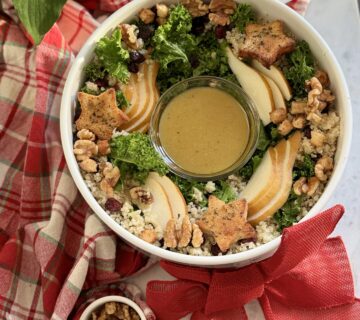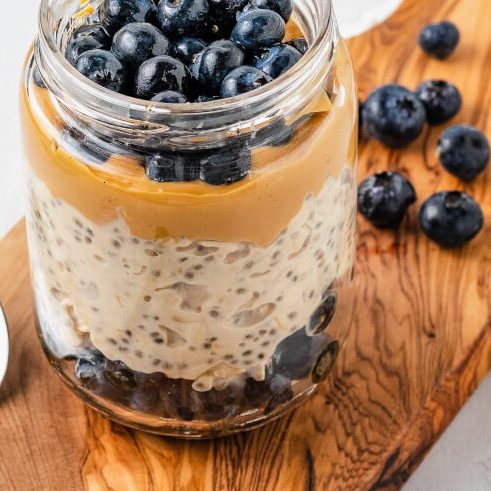Bloating is a common discomfort that affects millions of people all over the world. The term bloating has been characterized as the sensation of abdominal tension, distended abdomen, and abdominal gas pressure. The occurrence, severity, and presence of co-occurring gastrointestinal (GI) symptoms should be discussed with a physician, as this may be a sign of a GI disorder such as Inflammatory Bowel Disease (IBD) or Irritable Bowel Syndrome (IBS) or others. Bloating and distention in the upper abdomen can result from eating too quickly, which may lead to swallowing air as you eat, or as a result of the chemical reactions that occur in the stomach. Eating at an appropriate pace also facilitates proper chewing and prevents swallowing air, which would otherwise happen if one was eating too quickly! Not only does eating mindfully help prevent gulping down air, but it also allows our brain to register that we have had enough food since it does take roughly 20 minutes for the stretch receptors in our stomach to send the signal to our brain.
Bloating felt in the lower abdomen can be a result of gut microbiota feeding on the undigested carbohydrates in the small and large intestines, which is a process known as fermentation. As the beneficial bacteria in our gut feast on indigestible fibers, they produce gases like hydrogen, carbon dioxide, and methane. Intolerance to lactose, gluten, and fructose, which is the sugar found in honey and fruit, can also cause gas formation. In addition to this, intake of artificial sugars, carbonated drinks, chewing gum, or even after traveling by flight can lead to uncomfortable belly bloat. Bloating after a long flight is partly attributed to the change in cabin pressure during take-off and landing. In order to prevent these uncomfortable symptoms while traveling, it is important to stay hydrated and limit salt intake and the amount of gas forming foods you consume prior to, and during the flight.
You may be wondering if there are any specific foods that can alleviate your bloating symptoms. Luckily there are some universal tips to alleviate bloating, while other recommendations are better suited based on an individual assessment by a doctor or dietitian. Generally speaking, it is advised to reduce your sodium intake, include probiotics in your diet, stay hydrated, and know you’re your tolerance to gas-forming foods. My top 5 foods to reduce gas include: watermelon, cucumbers, Greek yogurt, bananas, and oats!
Some additional nutritional tips for reducing belly bloat include:
· Include potassium-rich fruits and vegetables into your diet. Some high potassium containing fruits and veg include: watermelon, bananas, avocados, oranges, spinach, and dried fruits. Potassium is a mineral that helps regulate the balance of fluids in the body and counteract sodium’s role in retaining fluids.
· Probiotics are beneficial bacteria that are thought to help populate “good” bacteria in our intestines and colon and promote normal gastrointestinal function. Probiotics have been shown to promote regularity and therefore may reduce bloat associated with constipation symptoms. Probiotic foods include kefir, yogurts and kimchi.
· Prebiotics help stimulate the growth of healthy bacteria in our gut. Prebiotics are indigestible fibers, which are fermented into short chain fatty acids and contribute energy to the cellular lining of the gut. Some prebiotics include chia seeds, Jerusalem artichokes, chicory root, dandelion greens, bananas, barley, oats among others.
· Fiber rich foods. According to the Mayo Clinic, constipation is a common cause of excess gas and bloating. Including fiber rich foods in your diet such as whole grains, fruits, vegetables, legumes and seeds helps to reduce constipation symptoms thus lessoning bloating. Note: slowly introduce fiber into your diet in order to prevent bloating and assess tolerance of various fiber rich foods.
Important note for those with IBS/IBD and SIBO: Certain fiber rich foods, including prebiotics that are Fermentable Oligo-Di Monosaccharides and Polyols (FODMAP’s) may not be tolerated well and may worsen bloating symptoms. It is best to discuss persistent symptoms with a physician and/or registered dietitian.
Sarah Marie Jackson a Registered Dietitian in private practice. Contact her at sarah@r2onutrition.com for comments and questions related to this blog.
#HealthyEating #reducebloating #summer #healthy #bellybloat #digestivehealth





No comment